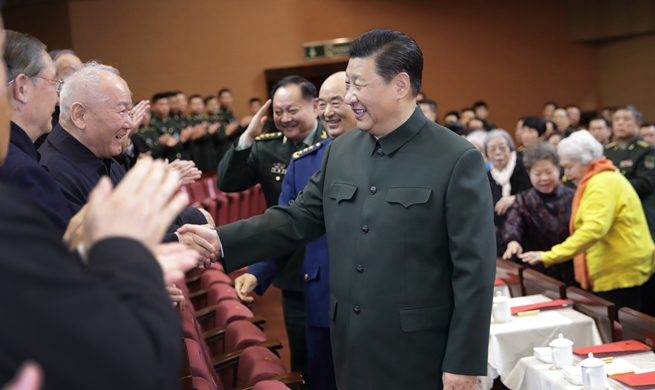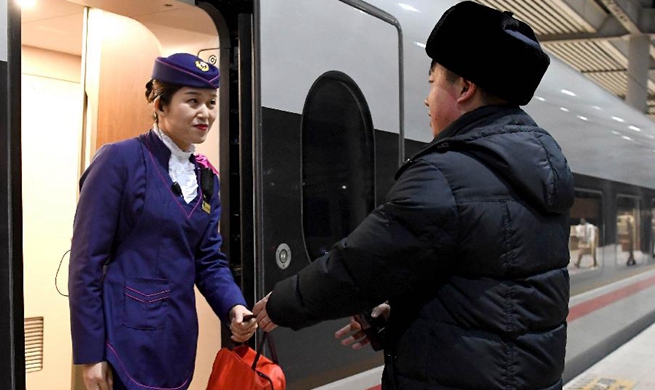DAVOS, Switzerland, Jan. 24 (Xinhua) -- UN Secretary-General Antonio Guterres warned on Thursday that climate change is the most important systemic risk for the near future, but the political will to address it is slowing down.
In a special address during the World Economic Forum (WEF) annual meeting, Guterres said the world faces a series of risks ranging from trade tensions, debt to instability in financial markets caused by political events, and climate change is proving to be worse than what scientists had foreseen.
"This when technology is on our side and we see more and more the business community ready to respond in a positive way and the civil society more and more engaged, but the political will is still very slow; and we see lots of subsidies to fossil fuels, we see carbon pricing in a very limited way, and we see many still putting into doubt whether climate change is a threat," he said.
"We are in a world in which global challenges are more and more integrated and the responses are more and more fragmented, and if this is not reversed, it's a recipe for disaster," he said.
On globalization, he said: "We no longer live in a bipolar or unipolar world but we are not yet in a multipolar world. We are in a kind of chaotic situation of transition."
To win support for multilateralism, Guterres said the UN need to demonstrate to all those that today are not in favour of multilateralism that it cares for them and aims at solving problems of all those that are feeling left behind.
The UN should let people know that it has launched a very substantial, robust program of reform, aiming at simplification of procedures and decentralization, he said.
The UN chief said the fourth industrial revolution, with artificial intelligence as probably the leading role, will have a huge impact in the economies and societies, with "a massive destruction of jobs and a massive creation of jobs."
To prepare for future work, the educational systems should focus on how people learn to learn instead of how much people learn, because people will be doing completely different things in their lives, he said.

















